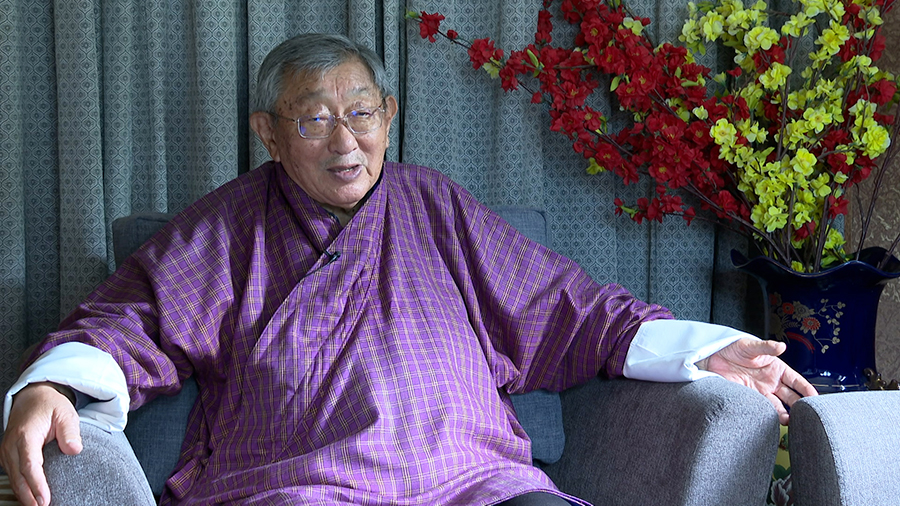 Today, June 2, is Social Forestry Day. It holds a deep significance. It is a green tribute to the nation’s deep-rooted environmental values and to the visionary leadership of His Majesty the Fourth Druk Gyalpo. The theme this year pays tribute to His Majesty the Fourth Druk Gyalpo’s Legacy of Conservation and Environmental Stewardship.
Today, June 2, is Social Forestry Day. It holds a deep significance. It is a green tribute to the nation’s deep-rooted environmental values and to the visionary leadership of His Majesty the Fourth Druk Gyalpo. The theme this year pays tribute to His Majesty the Fourth Druk Gyalpo’s Legacy of Conservation and Environmental Stewardship.
Coinciding with His Majesty the Fourth Druk Gyalpo’s coronation, the Social Forestry Day today paid homage to His Majesty the Fourth Druk Gyalpo’s extraordinary contributions to environmental conservation, particularly in safeguarding forests and the variety of life on earth.
More than just planting trees, the day celebrates Bhutan’s commitment to taking care of the natural environment, a legacy that has earned the country global recognition for sustainability and ecological balance.
 Dasho Paljor Dorji, the special advisor to the National Environment Commission said, “Social Forestry Day is not just about forests alone. The wealth that His Majesty has protected for Bhutan is not just the trees, but what these forests harbour, and they harbour biodiversity.”
Dasho Paljor Dorji, the special advisor to the National Environment Commission said, “Social Forestry Day is not just about forests alone. The wealth that His Majesty has protected for Bhutan is not just the trees, but what these forests harbour, and they harbour biodiversity.”
His Majesty the Fourth Druk Gyalpo introduced the development philosophy of Gross National Happiness. One of the four pillars of GNH is environmental conservation, which promotes a balance between development and nature.
Moreover, the constitution mandates 60 per cent forest cover to be maintained for all times to come. This policy has ensured that Bhutan remains one of the few carbon-negative countries in the world.
Dasho Paljor Dorji said, “People today talk about how the forests are not doing enough for nation-building and contributing economically, but believe me, they are contributing more than you would ever care to imagine, and these were all done under the blessings and guidance and protection of His Majesty the Great Fourth.”
His Majesty the Fourth Druk Gyalpo also prioritised the establishment of protected areas and biological corridors, allowing for the free movement of wildlife and preservation of biodiversity.
Furthermore, the Social Forestry Day has now fostered a culture of environmental responsibility among the Bhutanese people. By personally participating in tree planting initiatives and promoting sustainable practices, the day has inspired generations to uphold the values of protecting and preserving the environment.
“Our foresters are now really well-educated. They go with binoculars and a camera, and they are experts on reptiles, birds, flowers, you name it. And it is so fulfilling to see all these guys at work. I salute every one of them because this all happened under the blessings of the Great Fourth,” he added.
Social Forestry Day thus serves not only as a call to action for environmental protection but also as a celebration of His Majesty’s enduring legacy, one that continues to guide Bhutan’s environmental policies and set an example for the global community.
Kinzang Lhadon
Edited by Tandin Phuntsho






